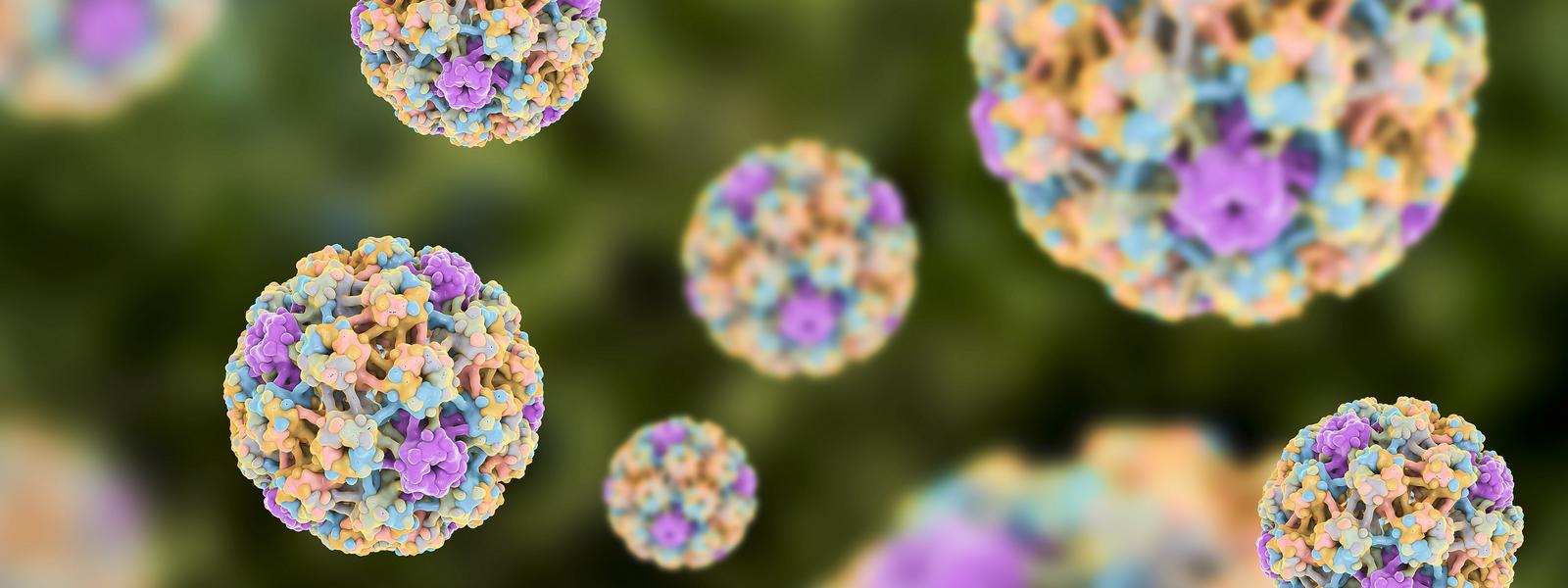
Immune Response Induced by Vaccination May Lower Risk of New HPV Infections and Associated HPV-Related Cancers in Post-Transplant Women
Women who completed a three-dose series of the HPV vaccine following a donor stem cell transplant developed a surprisingly robust immune response to vaccination, which was not significantly different from the responses in healthy women. That’s according to a study published in the Journal of the American Medical Association Oncology, which showed for the first time that the vaccine may protect this vulnerable population against new HPV infections and associated cancers.
HPV is the most common sexually transmitted infection in the United States and is categorized into low-risk and high-risk types. About 40% of women ages 18-59 – including post-transplant women – have genital HPV. Following a stem cell transplant, patients have a compromised immune system and often receive immunosuppressive treatment to prevent a reaction to their new, donor-acquired immune systems.
Lead author Pamela Stratton, M.D., currently a scientist at the National Institute of Neurological Disorders and Stroke, part of the National Institutes of Health, said previous studies indicate patients on immunosuppression treatment following transplant have an increased risk of developing severe HPV disease that warrants treatment.
Although post-transplant women are encouraged to be vaccinated, it was unclear whether stem cell transplant patients, either on or off immunosuppresssion would be able to mount a response to HPV vaccination. This gap in knowledge led to a collaboration with the laboratory of Ligia Pinto, Ph.D. at the Frederick National Laboratory for Cancer Research to investigate the immune responses to HPV in this new patient population.
Results of the study showed the potential benefit of the first generation, FDA-approved HPV vaccine that protects aganst four HPV types for women undergoing donor stem cell transplants, whether for cancer, inherited immune deficiencies, aplastic anemia or sickle cell disease.
The 64 study participants were administered the vaccine at at the beginning of the study, and at two and six months later. At 12 months following the third and final vaccine dose, transplant survivors showed a significant response: 78% of the participants on immunosuppression treatment and 95% of the participants off immunosuppression developed antibodies to the HPV antigens contained in the quadrivalent vaccine. Of note, five of eight women who had previously been treated with rituximab, which has been shown to hinder response to other vaccines, still showed an immune response to the vaccine. All 20 of the healthy volunteers developed an antibody response to HPV types included in the vaccine.
“The study results showed that stem cell transplant patients responded to HPV vaccination, and these results were very encouraging to us,” Pinto said. “This collaboration with Dr. Stratton expanded the knowledge of immunogenicity of the HPV vaccine to a new population, that had not been investigated before. However, this is a small study and raises the need for future research in this population.”
Stratton said given the compromised immune status of the post-transplant patients receiving immunosuppressant therapy, researchers expected the group to have a weaker response to the vaccine compared to healthy women or post-transplant women who were not receiving therapy. But the study found that the antibody responses were not statistically significantly different between the groups.
Stratton said the current HPV vaccination does not eliminate an existing HPV infection. But “vaccinating women after stem cell transplant would lessen the risk of acquiring new HPV infections which, in turn, might lead to a decrease in cervical, vulvar and other HPV-associated cancers in this population,” she said.
This study was funded as an Intramural Research Program Bench to Bedside Award sponsored by the Office of Research on Women’s Health to Dr. Aarthi Shenoy of the National Heart, Lung, and Blood Institute , Dr. Lauren Wood of the National Cancer Institute (NCI), Dr. Ligia Pinto of the Frederick National Laboratory for Cancer Research, sponsored by NCI, and Dr. Pamela Stratton of the Eunice Kennedy Shriver National Institute of Child Health and Human Development, with additional funding to Dr. Dana Shanis and Dr. Stratton from the American College of Obstetrics and Gynecology/Hologic Research Award on Cervical Cancer Prevention.
Media Inquiries
Mary Ellen Hackett
Manager, Communications Office
301-401-8670
